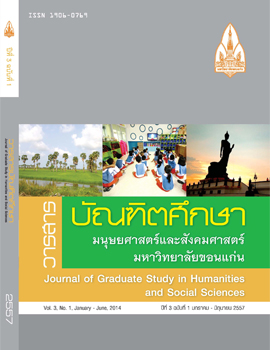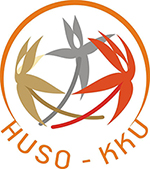นาข้าวระโนด: วิถีชีวิตชาวนาที่เปลี่ยนแปลงท่ามกลางกระแสโลกาภิวัตน์
Keywords:
นาข้าวระโนด, การเปลี่ยนแปลง, วิถีชีวิต, โลกาภิวัตน์, rice fields in Ranot, changing, way of life, globalizationAbstract
งานวิจัยนี้มีวัตถุประสงค์เพื่อศึกษาการเปลี่ยนแปลงวิถีชีวิตชาวนาในชุมชนเจดีย์งาม อำเภอระโนด จังหวัดสงขลา ใช้การสัมภาษณ์แบบเจาะลึกกับชาวนา ผู้นำชุมชน ชาวบ้าน และเจ้าหน้าที่ที่เกี่ยวข้อง จำนวน 15 คน การสนทนากลุ่มกับชาวนา กลุ่มละ 3-5 คน และการสังเกตแบบไม่มีส่วนร่วม วิเคราะห์ สังเคราะห์ และเขียนรายงานผลการวิจัยโดยวิธีพรรณนา
ผลการศึกษา พบว่า ปัญหาหลักคือผลกระทบจากการเปิดปากระวะทำให้น้ำทะเลไหลเข้ามาในพื้นที่นา เกิดปัญหาน้ำท่วม และดินขาดความอุดมสมบูรณ์ ประกอบกับระบอบทุนนิยมในการทำการเกษตรกรรมแบบการค้าเข้ามาในพื้นที่ ทำให้ชาวนาต้องปรับเปลี่ยนการใช้พื้นที่นาไปเป็นการทำสวนปาล์ม หรือทำแปลงผัก หรือปลูกสร้างที่พักเพื่อรองรับการท่องเที่ยว หรือปล่อยให้ที่นาร้างว่างเปล่า ซึ่งเป็นสาเหตุสำคัญของการเปลี่ยนแปลงวิถีชีวิตของชาวบ้านในชุมชนบางรายประสบความสำเร็จในการปรับเปลี่ยนวิถีชีวิต แต่บางรายล้มเหลว จึงส่งผลให้เกิดความแตกต่างทั้งทางเศรษฐกิจ สังคมและการดำเนินชีวิต
อนึ่ง ข้าวถือเป็นอาหารที่ผูกพันกับคนในชุมชนมาช้านาน การปรับเปลี่ยนการใช้พื้นที่นาไปทำกิจกรรมทางเศรษฐกิจอื่นใดแทน ย่อมส่งผลกระทบต่อวิถีชีวิตอย่างหลีกเลี่ยงไม่ได้ ดังนั้นผู้มีส่วนได้เสียในชุมชนต้องตระหนักรู้และหาทางรับมือกับความเปลี่ยนแปลงดังกล่าว ตลอดจนเสริมสร้างให้เกิดความมั่นคงทางอาหารของชุมชนอย่างยั่งยืนต่อไป
Rice fields in Ranod: The rice farmers’ changing way of life amidst globalization
The objective of this research was to investigate the rice farmers’ changing way of life in Chedi Ngam Community, Ranod District, Songkhla Province. The data were collected through in-depth interviews with 15 informants consisting of rice farmers, community leaders, people in the community, and related officials; focus group discussions with groups of 3-5 rice farmers; and non-participatory observations. The data were then analyzed and synthesized before a descriptive report was written.
The results of the study revealed that the main problem was the effects from opening Rawa Bay, the waterway that connects the lake and the sea allowing seawater to flow in rice fields that causes floods and soil infertility. Another problem has brought capitalism in commercial farming to the area forcing rice farmers to convert their rice fields to oil palm plantations or vegetable gardens or tourist accommodation facilities or leaving them deserted. These are important causes of the changing way of life of people in the community. Some of them have changed their way of life in successful ways while others failed. As a result, they are different economically, socially, and in their living.
Rice has been a staple food for people in the community for a long time.Therefore, turning rice fields into other economic activities has inevitably affected the rice farmers’ way of life. Thus, stakeholders in the community must realize and try to find ways to cope with the change and to build sustainable community food security.







